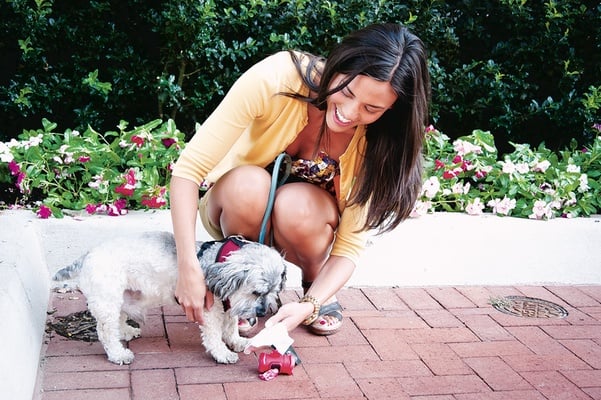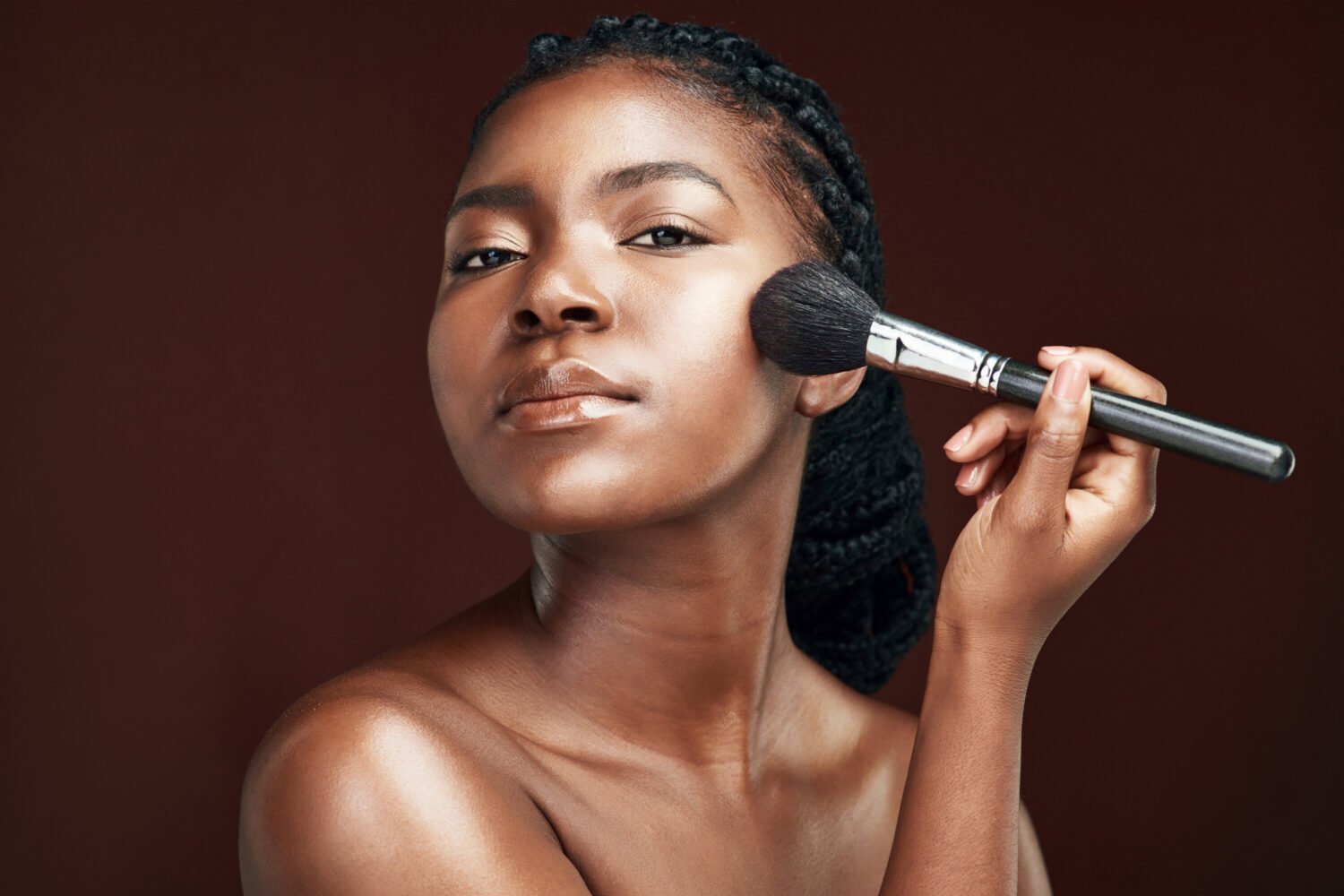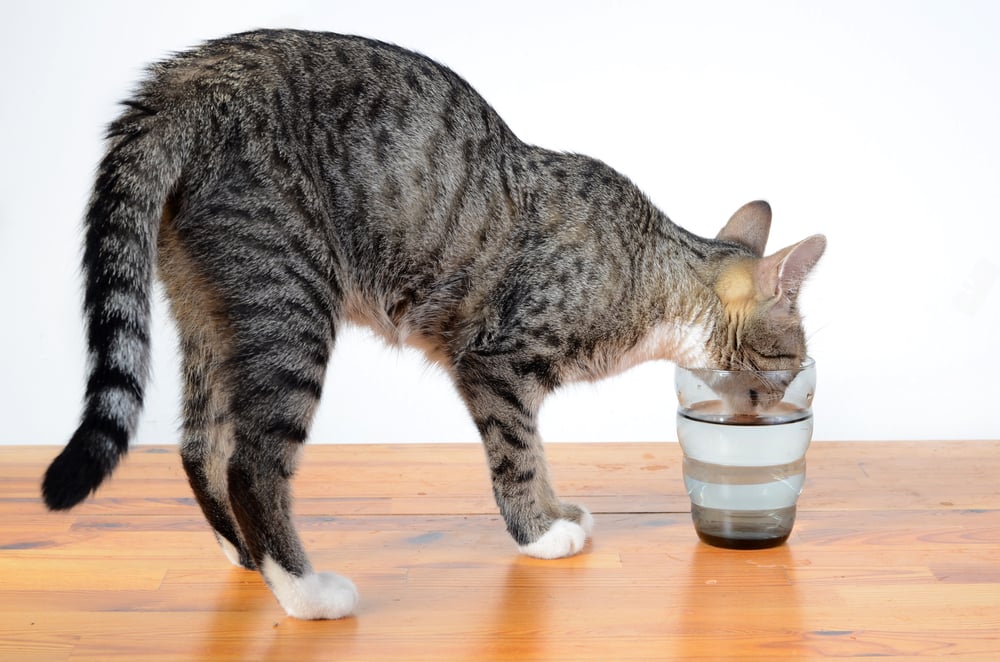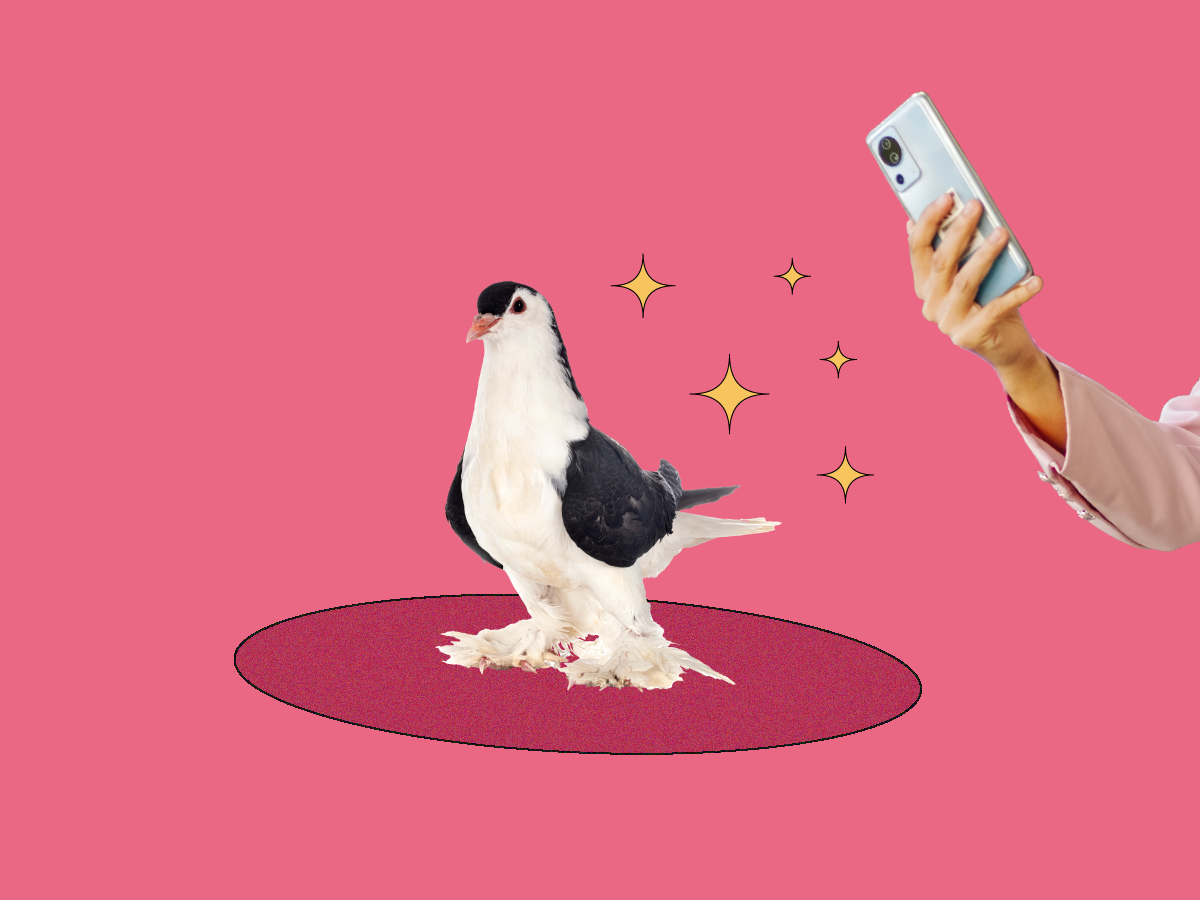The author wipes Bexley’s paws after walks and gives him filtered water. Photograph by Erik Uecke
When I first met my dog, Bexley, at the Washington Humane Society, his hair was matted and he smelled terrible. He had fresh sutures from getting neutered at the shelter, which meant I couldn’t bathe him for two weeks.
That none of this fazed me is how I knew I was in love. Germs usually freak me out—I could teach a seminar on how to use a public bathroom without touching anything—but Bexley still got lots of snuggles.
Once I was able to have him bathed and groomed, my type-A instincts kicked in. Two years later, Bexley, a miniature-poodle mix, dutifully raises his paws when we return from a walk, in anticipation of the baby wipe I’ll use to rub them down.
I had assumed I was just neurotic, until a recent trip to the vet. During Bexley’s check-up at CityPaws in DC, Dr. Wendy Knight explained that even though parasites are a concern for pets year-round, summer is peak season for contracting them. Parasites, parasite eggs, and bacteria thrive in humidity.
Knight said it was good that I wipe off Bexley’s paws because dogs can get intestinal parasites, such as hookworms and roundworms, by stepping in poop from an infected animal or walking on contaminated soil or grass. Knight says she treats more dogs with parasites now than she did when she practiced in McLean because city dogs are more likely to spend time in public parks.
Suburban dogs—particularly ones that go to daycare, play in parks, and stay in boarding facilities—are also at risk. Ashley Hughes, a veterinarian at Friendship Hospital for Animals in DC’s Tenleytown, says that even dogs that hang out in their own back yards can get parasites from neighborhood cats or other animals wandering through.
I was feeling like a star parent at Bexley’s appointment after Knight praised my use of baby wipes. Then she mentioned that water bowls at parks or those left out by well-meaning businesses can also be a hazard. A sick dog might drink from a bowl and spread the parasite to the next thirsty dog. On hot days, I had always let Bex drink out of the bowls we passed on 14th Street in Northwest DC.
Hughes says one of the most common diseases dogs get from communal water bowls is canine papilloma virus. Dogs that like to swim in lakes, streams, or ponds are at greater risk of getting giardia. Vets say they see giardia relatively frequently and the only way to prevent it is to keep dogs away from the water.
Another threat to dogs is leptospirosis, a bacterium that comes from animal urine. Possums, raccoons, rats, and other rodents can carry the disease and pass it on to dogs that drink from contaminated rain puddles. Leptospirosis often goes undiagnosed—symptoms include fever as well as excessive urinating and drinking—and can lead to liver and kidney failure. There’s a vaccine, though vets don’t always include it as one of the core vaccines, such as rabies or distemper, so dog owners should ask about it.
For dogs such as Bexley that take monthly heartworm preventatives—the medications, such as Interceptor Flavor Tabs and Heartgard Plus, also help protect against hookworms and roundworms—Knight recommends annual stool tests to check for parasites. Dogs not on preventatives should get tested every six months.
Bexley had his parasite test earlier this summer. He aced it—meaning he’s healthy—and Mommy is very proud.
This article appears in the August 2011 issue of The Washingtonian.
Subscribe to Washingtonian
Follow Washingtonian on Twitter
More>> Open House Blog | Homes | Real Estate

















